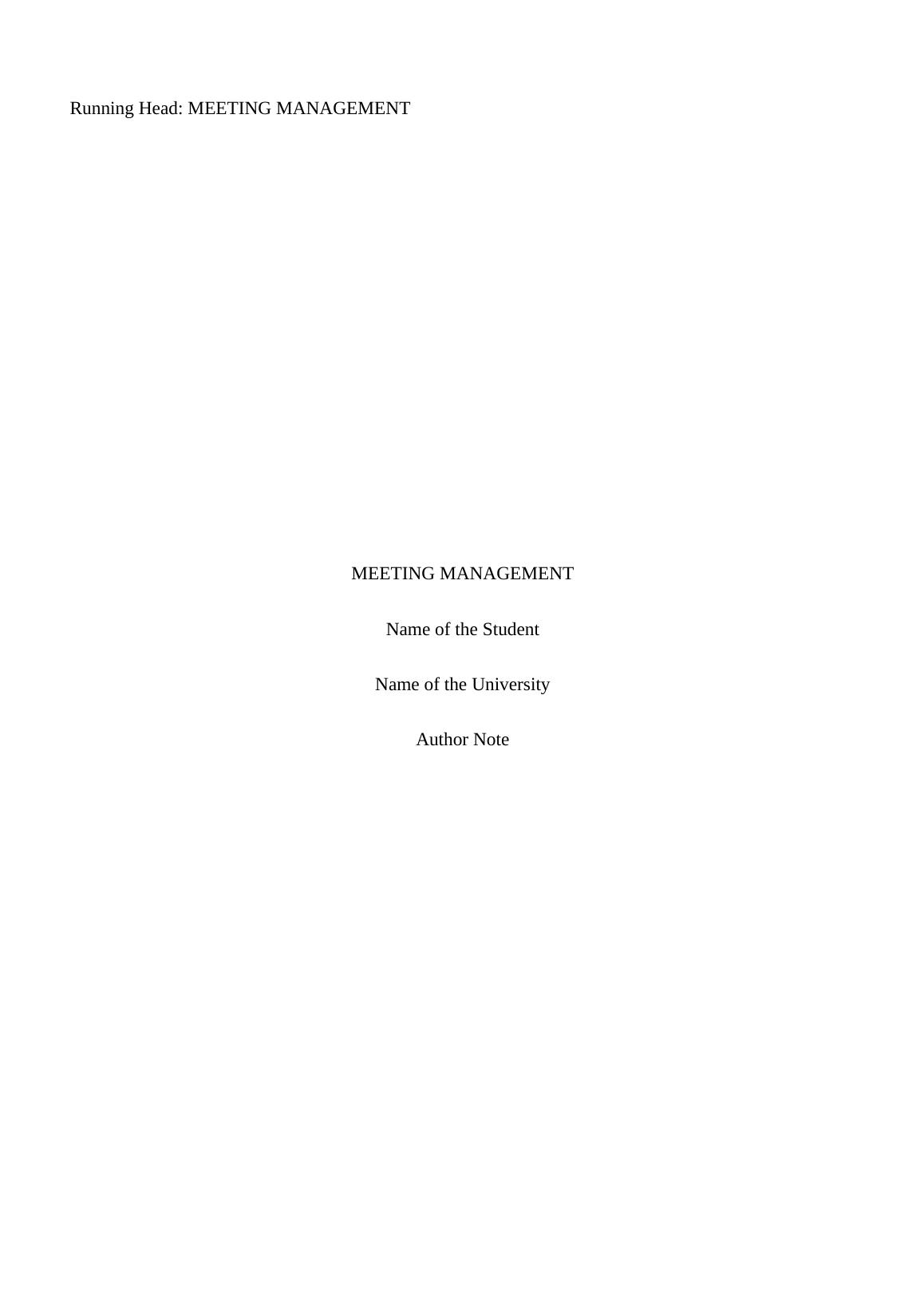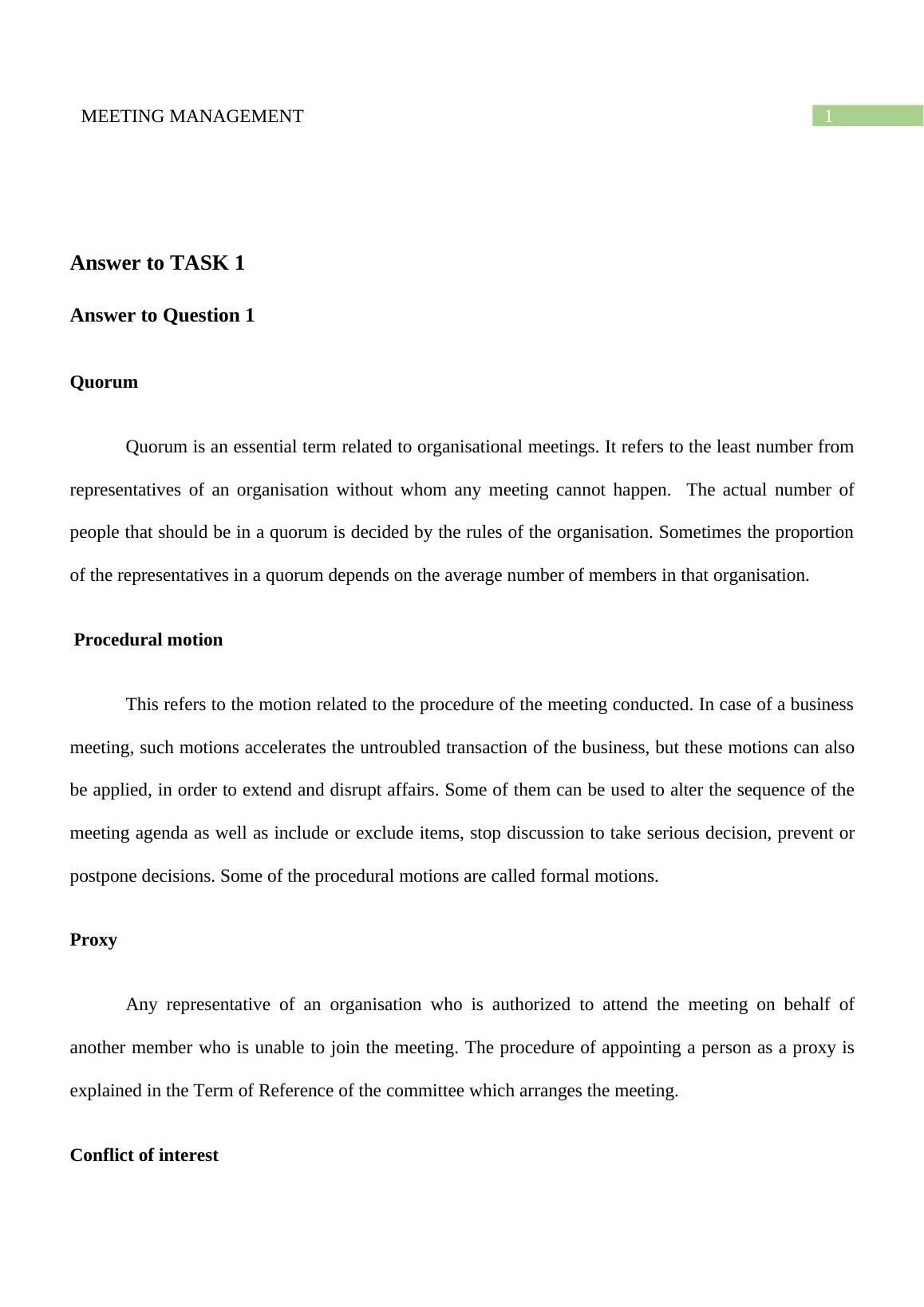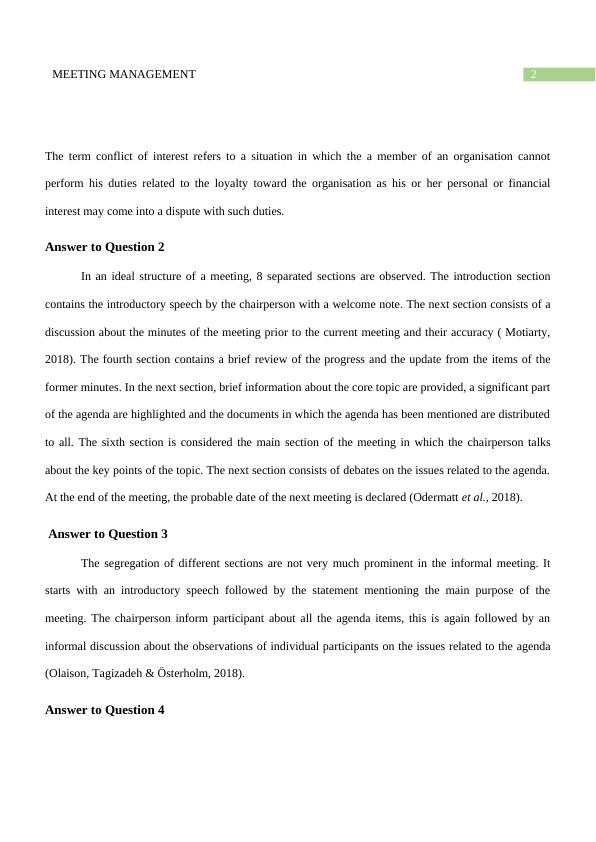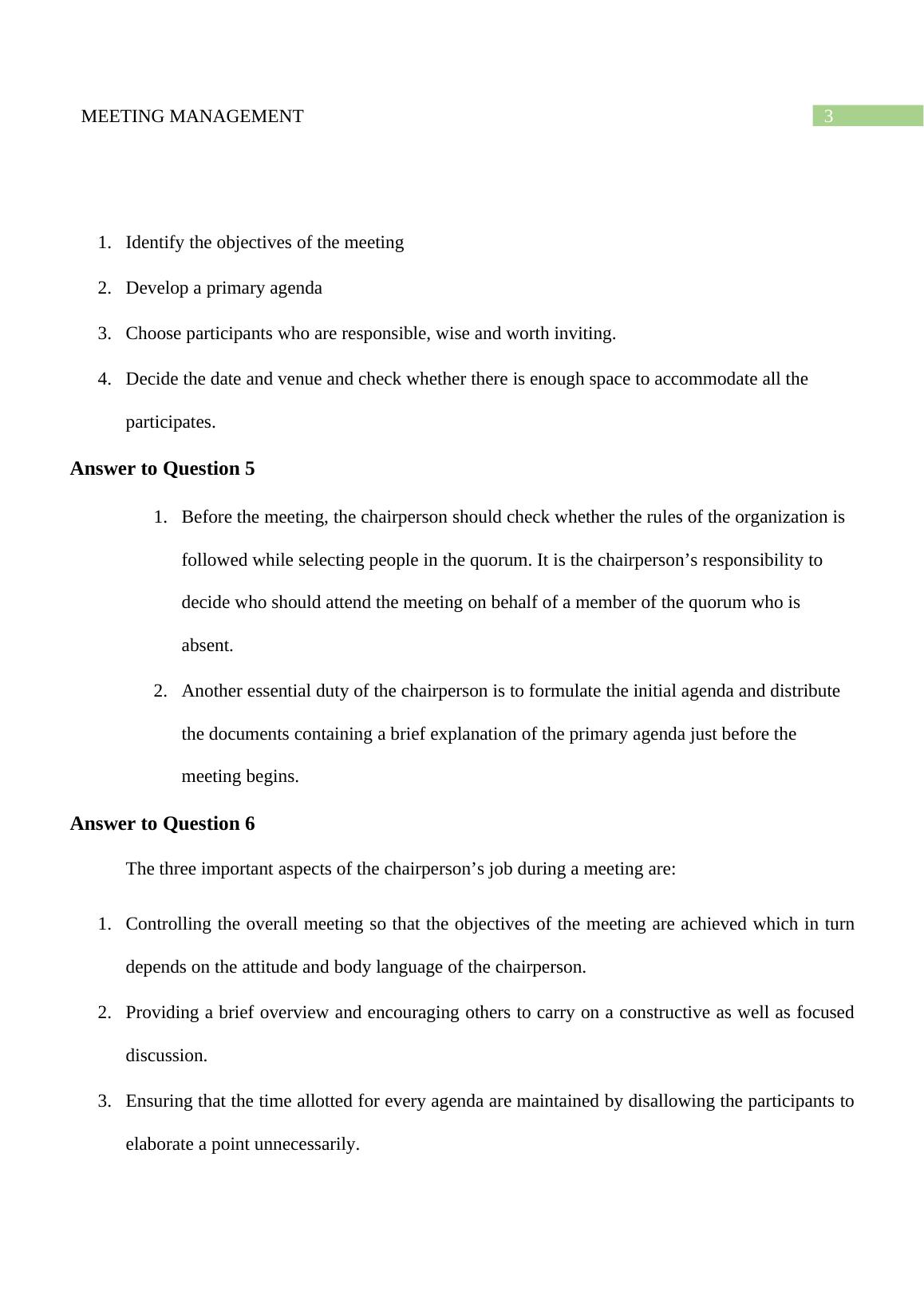Importance of Meeting Management
This assignment is for the course BSBADM502 Manage meetings at Alpha Institute. It includes written questions, a formal meeting project, and an informal meeting project.
14 Pages2741 Words96 Views
Added on 2023-04-21
About This Document
This document discusses the importance of meeting management and provides strategies for effective meetings. It covers topics such as quorum, procedural motion, proxy, and conflict of interest. The document also explores the structure of formal and informal meetings and the role of the chairperson. Additionally, it discusses the benefits of face-to-face meetings and web conferences. Overall, this document provides valuable insights into meeting management.
Importance of Meeting Management
This assignment is for the course BSBADM502 Manage meetings at Alpha Institute. It includes written questions, a formal meeting project, and an informal meeting project.
Added on 2023-04-21
ShareRelated Documents
End of preview
Want to access all the pages? Upload your documents or become a member.
BSBADM502 Manage Meetings Assignment
|15
|2156
|426
Manage Meeting Assessment 2022
|21
|4649
|19
Manage Meetings: Tips, Roles, and Procedures for Effective Meetings
|19
|3983
|235
BSBADM502 Manage Meetings
|20
|5779
|2
Reflection Report on Managing a Meeting
|3
|557
|431
Strategic Internet Marketing - PDF
|10
|2010
|32




